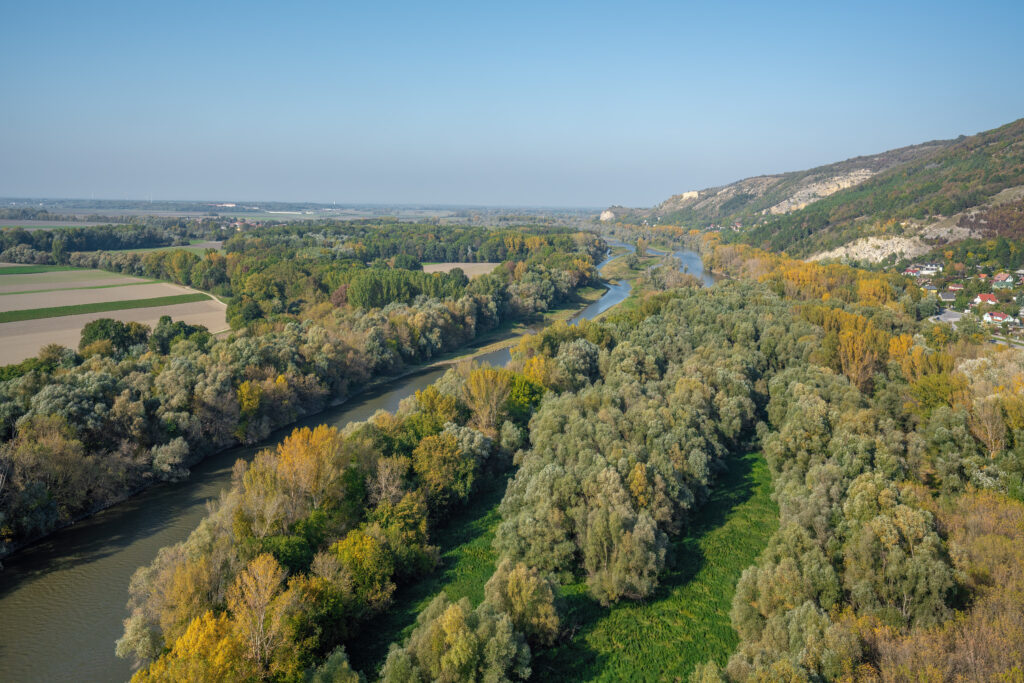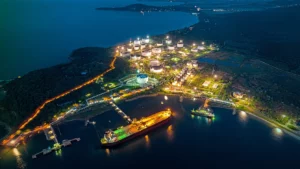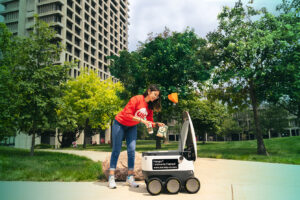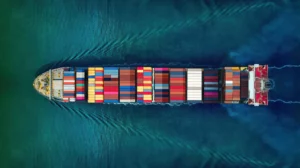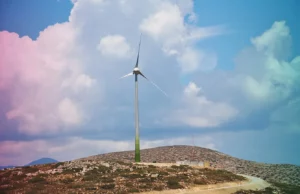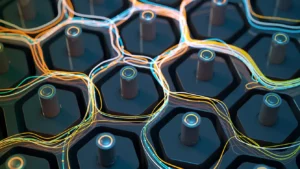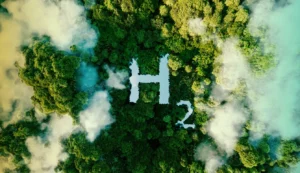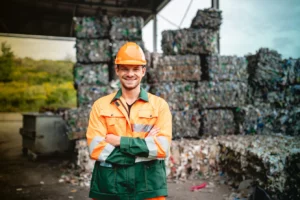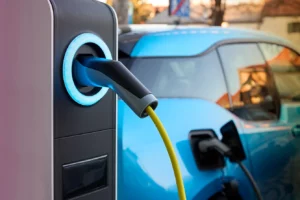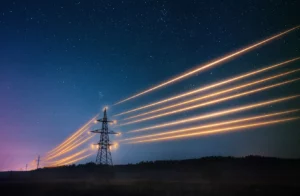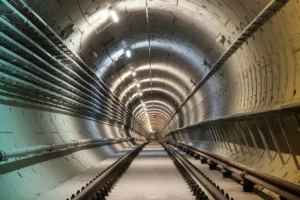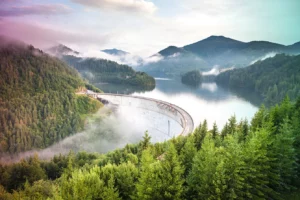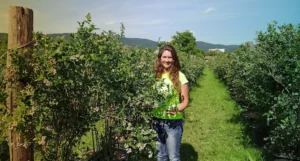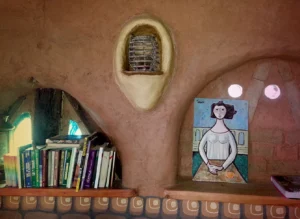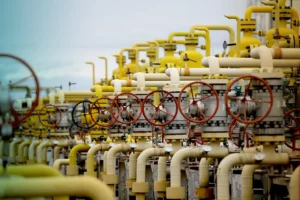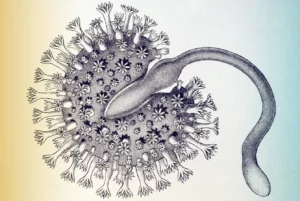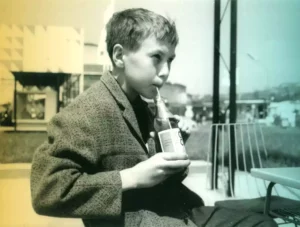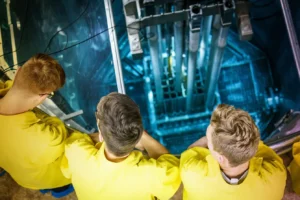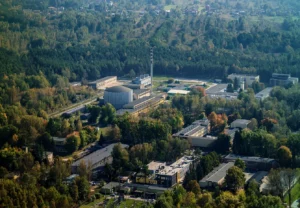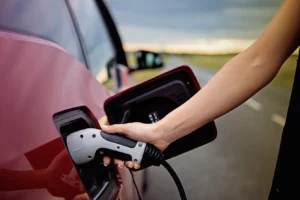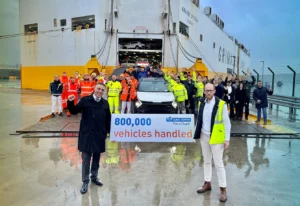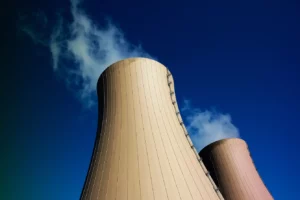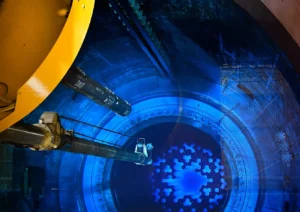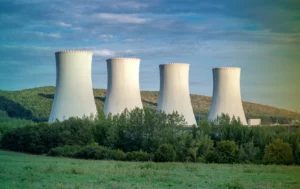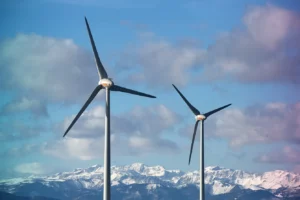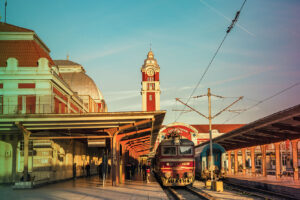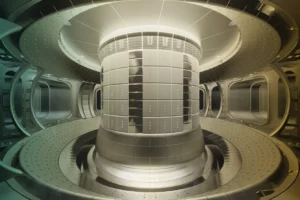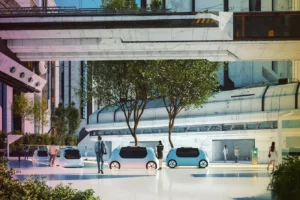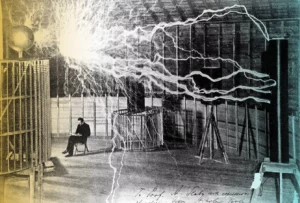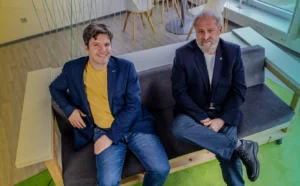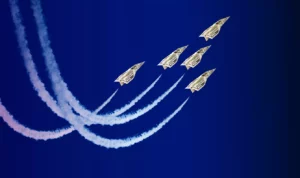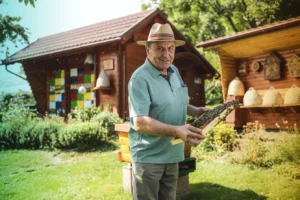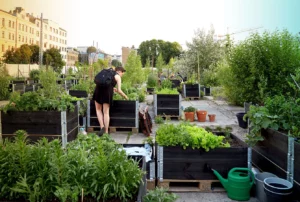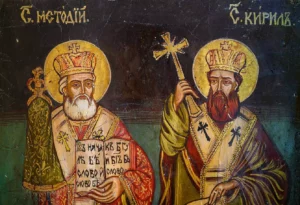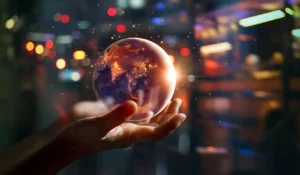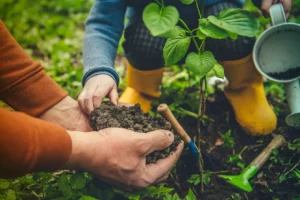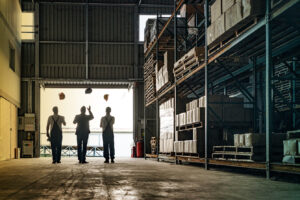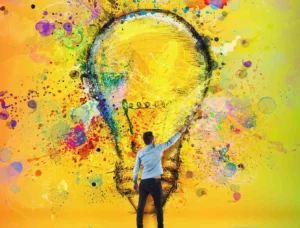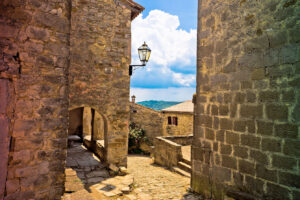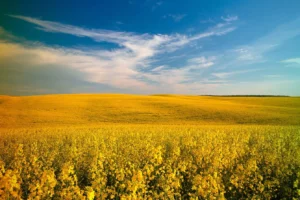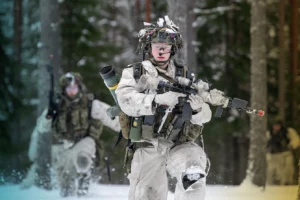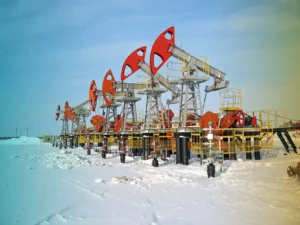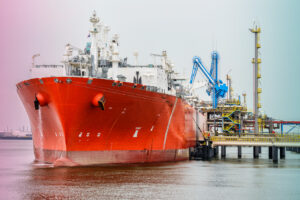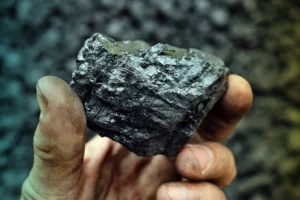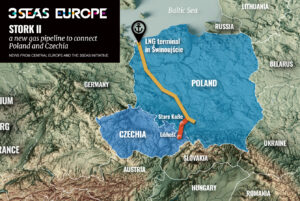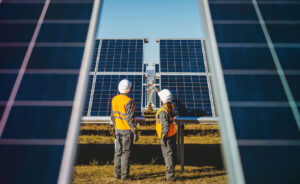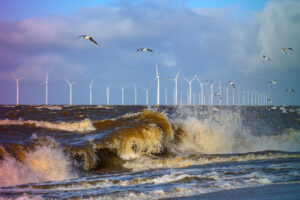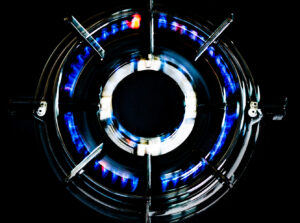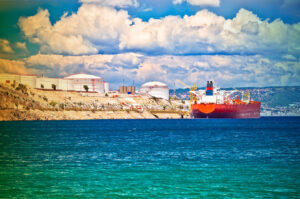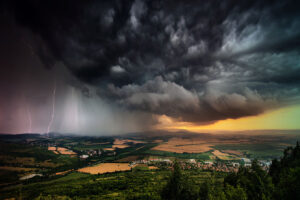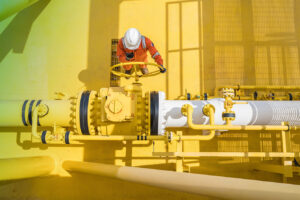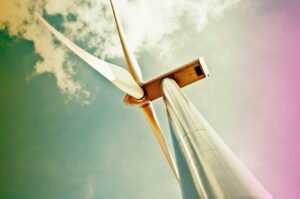Nestled within the picturesque landscapes of Czechia lies a testament to human creativity and decisiveness – the Baťa Canal. This remarkable engineering marvel stands as a tribute to the vision of its creator, Tomáš Baťa, and continues to play a crucial role.
If grabbing a to-go cup of coffee at your local café is your daily ritual, you’re not alone. One company in Bulgaria wants to make that habit as sustainable as possible with their edible, biodegradable wafer cups.
In September 2022, The Three Seas Initiative Investment Fund (3SIIF) acquired a significant interest in BMF Port Burgas, a major port operator in the Port of Burgas on Bulgaria's Black Sea coast.
The sidewalks of Tallinn bustle with people going about their daily lives. They are also full of adorable, 6-wheeled delivery robots ferrying take-out and groceries to hungry patrons. A strange sight to some, here, it's just a part of daily life.
Greek scaleup DeepSea is slashing shipping emissions with its AI technology. By optimizing route planning and vessel efficiency, freighters can cut carbon and costs. Will it usher in a sea of change?
A remote island in Greece's Dodecanese archipelago has become the first in the Mediterranean to become entirely self-sufficient in energy. How has this changed life on Tilos, and will it inspire other islands to follow suit?
At Jagiellonian University in Cracow, the world's first prototype of a prism fuel cell was created using a technology that eliminates the need for cobalt and graphite. But that's not all.
Three Seas Initiative countries want to make the most of the economic opportunities opened up by the development of clean hydrogen technologies.
Recycling in Slovenia has grown by 2000% in twenty-five years. How did Ljubljana go from landfill city to zero-waste leader?
Since carrots tend to stick more in consumers' minds than sticks, Romania jumpstarted its green revolution through an array of incentives for electric vehicles instead of restrictions on their fuel-driven counterparts.
The Czech government is getting ready to update the National Energy Strategy. Even though the last one was published in 2015, many things have changed since then, and everyone is awaiting the updated version.
After years of declarations, studies, negotiations, and public procurements, Cluj-Napoca signed a EUR 2 bln contract to build Romania's second metro system (one of the few new ones in CEE).
Sofia, among other capitals and cities across the 3Seas Region, offers some good news in the race for cleaner transport. But a lot still must be done.
In the hopes of transforming energy dreams into concrete actions, Bucharest aspires to overcome some of its shortcomings by shifting an entire sector. Regional interconnection, smart and green energy solutions, Black Sea exploration, and capacity expansion are all on the table.
NEoT Capital and the Three Seas Investment Fund (3SIIF) have formed an alliance to remodel public and commercial transport in Central and Eastern Europe (CEE). Thanks to this partnership, it might just happen sooner than we think.
Different Central European countries are investing heavily in the industry around electric vehicles, seeing it as an opportunity to catch up with the developmental lag from the 20th century.
The bioleaching by bacteria can help remove undesired side effects of primary and secondary raw materials and support the growth of desired plants. This biological procedure has been turned into specific services and brought to the market by ekolive from Slovakia.
A quick Google search produces promising results: Bulgaria is not lacking in eco-friendly houses. Yet, Bulgarian architects devoted to promoting sustainable architecture say, “Not so fast…”
Bulgaria hasn’t been blessed with limitless supplies of natural gas, but the country is still looking to play an important role on the gas market.
How long did it take until Bulgaria found its current location in southeastern Europe?
A group of scientists from Brno has made a revolutionary discovery. What sounds like science fiction is within reach: light without electricity!
Dreams of future coastal cruising along the beautiful coast of the Black Sea.
There are only a handful of countries around the world where Coca-Cola does not reign supreme. Czechia and Slovakia are among them. Meet Kofola, the socialist Coke alternative introduced in the 60s, still holding strong and topping the soft-drink market.
Unbeknownst to the majority of people filling the streets of Prague, there is a nuclear reactor in the center of the city. What does it do? Is it dangerous? Or is it a future of commercial use of Small Modular Reactors?
Enthusiasm for nuclear energy in Poland is not waning. In addition to the full-size Korean and American reactors, another one will be built. The National Center for Nuclear Research, with the help of Japanese specialists, will design a new experimental reactor.
One Romanian start-up aims to charge your vehicle up to 80% in 10 minutes, making long
distance travel possible, first in Romania and then throughout the rest of Central and Eastern
Europe.
If you aren’t as well-endowed as you would like, the best strategy is to make optimal use of what you do have – just like Slovenia does with its seemingly insignificant access to the sea.
The issue of atomic energy for Poland is accelerating. Three major players – reactors manufacturers - were fighting for the contract to build Poland's first power plant. The showdown between them was as if modeled on the Game of Thrones intrigues.
There’s a fierce fight brewing between three competitors vying to build the fifth nuclear reactor of the Dukovany Nuclear Power Plant in Czechia. Who is most likely to win?
It looks like the renaissance of nuclear technology is beginning. Countries in the Central European region are leading the way.
The sources from which we generate electricity have become the center of attention of every European in light of recent events. Austria's energy mix is one to envy, and here's why.
The new railway network will connect all of Poland’s larger cities with a mega-airport near Warsaw as well as connect Poland with neighboring countries.
The Ruse-Varna railway line, the original final stretch of Europe’s Orient Express, is about to be modernized, benefiting Bulgaria, the EU, and the Three Seas Initiative.
Czech scientists are tirelessly working on creating an artificial Sun that will help Czechia, Europe, and the whole world access unlimited energy.
The Czech City for the Future project shows one options of how people will live in 2050. The goal is to make every city a living organism rather than a sea of concrete buildings.
Long before anybody had any idea of sustainable energy Nicola Tesla was preoccupied with finding new energy sources. Europe’s first hydropower plant is just one of his genius inventions. Get to know the man behind your dynamo.
The Czech family-run startup Ullmanna is one of few to have developed an AI machine for agriculture. The flagship product, an intra-row weeding machine called NEWMAN, removes weeds manually faster than you can even spot them.
Central European countries were the first to experience the shock of neighboring an open, full-scale war. But watching their reaction also shows that they will be the first to adapt to the new reality.
Slovenia is literally flowing with honey. Since the 11th century, beekeeping has been an essential part of Slovenian culture, an inspiration for art and design, and the backbone of local tourism. Professional beekeeping is so rooted in Slovenia that one in two hundred Slovenes is a beekeeper.
What to do with an overgrown piece of land in a bustling capital city whose residents live mostly in apartments? One active community in Riga founded urban gardens, illustrating the potential of transforming derelict plots into added value for a city.
To easily navigate through Central Europe, you should know at least a few languages and no fewer than two scripts. The border between Latin and Cyrillic scripts is one of culture and politics.
Energy prices are rising with no sign of stopping. Economic sanctions against Russia have closed off one of the largest sources of European energy. Now begins the debate over what to do. The answer is simple, and it comes from Czechia: Small Modular Reactors.
Our region's countries are often considered less advanced at greening their economies than other parts of the developed world. Is this really true?
With grocery stores overflowing with produce from the other side of the world and “all-natural” products in plastic packaging at every turn, it’s no wonder that even the savviest consumers find it hard to make sustainable choices. Austrian startup Inoqo aims to make that a little easier.
The main engine for the Central Eastern European (CEE) economies is foreign investment, attracted by cheap labor. Are rising wages leading to a loss of competitiveness, and, if so, how should the economic development model adapt to this new reality?
With continuous pushes from interest groups, the public, and the European Union for greener and more sustainable energy, the Czech government plans to build new nuclear reactors. But this is easier said than done.
It’s always good to know your neighbor. This is almost certainly the case in the village of Hum, Croatia, which boasts fewer than 30 current residents. Besides its tiny size, its other claim to fame is a secret recipe supposedly passed down by Celtic Druids some two thousand years ago.
Economic relations between Three Seas countries and Ukraine before the war were strong compared to other EU countries. This provides a solid foundation on which future relations can be strengthened.
Today, Lithuania, Latvia, and Estonia are the most vulnerable members of the North Atlantic Treaty Organization (NATO). Would these countries be able to defend themselves against threats from the east?
When Francis I of France suffered a stomach disease, a renowned doctor was summoned from Constantinople, soon arriving in Paris in unusual company – a flock of about 40 sheep. The good doctor got to work fermenting the sheep milk and offered it as a remedy. The King made a swift recovery.
At the end of March, Poland announced it would halt imports of Russian oil by the end of 2022, and the European Commission followed suit, proposing a ban on 4 May.
Following Russia’s invasion of Ukraine, countries are scrambling to get their hands on massive vessels that can regasify Liquified Natural Gas into regular gas. These floating LNG terminals will be a big part of the solution when the EU moves away from Russian gas, but will Finland and Estonia be able to put them to good use?
The countries of Central and Eastern Europe are the most dependent on coal-fired energy production among the countries of the European Union. How can this weakness be turned into an opportunity?
The Polish and Czech governments have agreed to restart work on the Stork II gas pipeline, a project of key importance to Czechia’s ambition to rid itself of dependency on Russian gas.
The Three Seas Initiative Investment Fund is financing the development of solar power projects across Central Eastern Europe.
The Baltic country is preparing the construction of its first offshore wind park to start in 2024.
The construction of the BRUA gas pipeline has received another permit, making it more likely that Europe will be able to increase the diversification of its energy supplies.
For a little over a year, Croatians and others living in Central Europe have had access to natural gas from a new source. Gas shipped in from across the world will help our planet from overheating and provide more supply security.
The number of startups-turned-unicorns from behind the former Iron Curtain is exploding.
With the looming threat of water-related catastrophes on the rise, Natural Small Water Retention Measures can become our Noah’s Ark if applied on a wide scale.
Ever since European countries experienced a sharp drop in Russian gas supplies through Ukraine to Europe in early 2006, people in Central Eastern Europe have been aware of the need to diversify the imports of natural gas.
Walking a thin line, balancing energy poverty with the fight against climate change.
In 2024, a two-year construction project for a Polish wind farm in the Baltic Sea will begin, comprising 70 turbines, which will generate over 1 GW of power. Located 22 km offshore, these new turbines will generate more power than a recently-commissioned Danish farm with 72 turbines.


